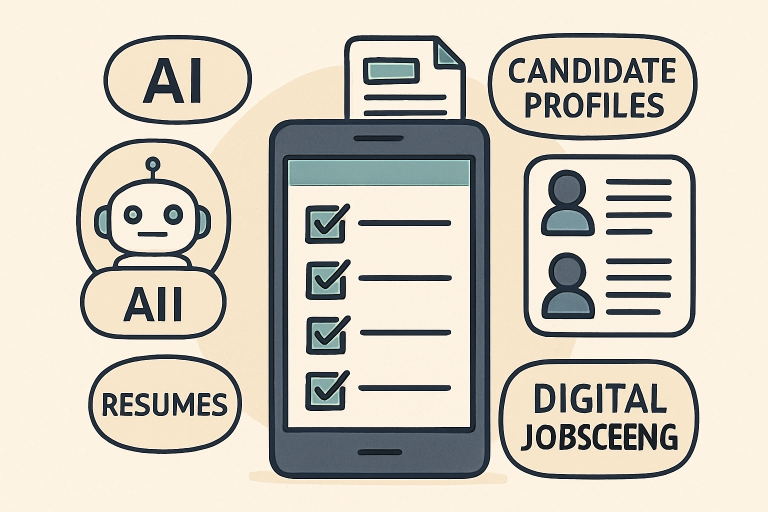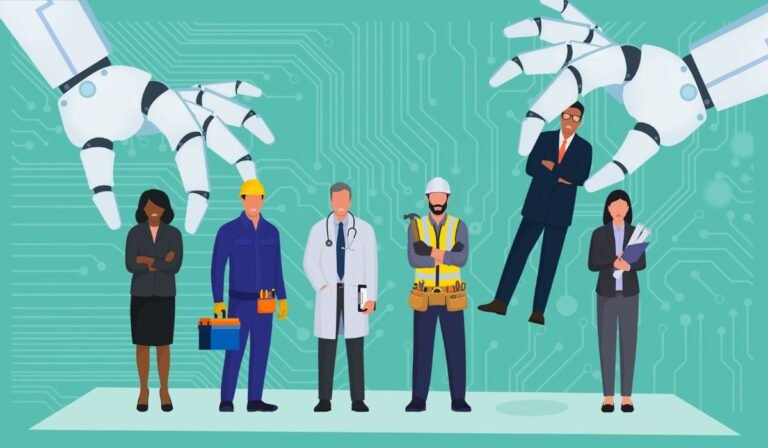In an era of rapid technological advancement and shifting workplace expectations, the traditional methods of assessing job candidates are being fundamentally transformed. Employers now employ a combination of automation, digital tools, and new evaluation strategies to build high-performing teams.
One crucial factor remains the need for due diligence, including a comprehensive national criminal background check, to ensure regulatory compliance and workforce integrity throughout recruitment. As these screening methods evolve, both companies and applicants are experiencing a very different hiring landscape compared to just a decade ago.
From artificial intelligence-powered solutions to new ways of assessing remote work readiness, the future of hiring promises to be more efficient and equitable. These changes are reshaping how skills and attributes are measured and how data privacy and applicant experience are managed. For organizations, adapting to these trends is crucial for staying competitive and attracting the best talent, while job seekers need to understand what matters most in this transformative period.
Recent studies by reputable resources such as Harvard Business Review highlight how digital disruption is forcing businesses to rethink every stage of their recruitment strategies, making it more crucial than ever to keep up with the latest developments.
AI Integration in Screening Processes
Artificial Intelligence (AI) has emerged as a core component of modern candidate screening. Advanced systems now automate repetitive tasks, from resume sifting to basic interviews, radically accelerating the hiring cycle. AI-driven platforms match applicants to job descriptions by parsing keywords, experience, and relevant skills across large candidate pools. This removes the manual bottleneck of human review and can result in a more focused shortlist for deeper evaluation.
Nevertheless, AI adoption comes with critical ethical challenges. Algorithms may unintentionally reinforce existing biases present in the training data. For example, The New York Times reported on how some hiring tools showed gender bias due to skewed historical data. Employers now face increasing pressure to make their AI systems transparent, unbiased, and regularly audited to ensure fair outcomes.

Remote Work Compatibility Assessments
The rise of distributed teams has made remote work capability a top priority in screening. Employers now examine more than technical proficiency; they look for evidence of independence, focus, and comfort with digital collaboration tools. Pre-employment assessments, scenario-based interview questions, and trial tasks help gauge whether candidates are self-motivated and tech-savvy enough to excel outside a traditional office environment.
This remote-readiness evaluation reflects a broader shift toward adaptability and continuous learning. Companies want employees who thrive amid change, communicate effectively across time zones, and proactively solve problems—traits critical to thriving in today’s hybrid workplaces.
Emphasis on Soft Skills
As automation and technology handle more repetitive and technical work, human-centric skills have become the new differentiator. Soft skills like communication, teamwork, initiative, and resilience now shape hiring decisions. Businesses deploy structured behavioral interviews and situational judgment tests to capture these traits more accurately, ensuring that new hires integrate seamlessly and support company culture.
Industry leaders believe investing in candidates with strong interpersonal and problem-solving skills is key to innovation and collaboration. Through practical scenarios and real-time feedback, recruiters seek to uncover a candidate’s true approach to workplace challenges and interactions.
Continuous Screening Practices
The traditional “one and done” background screening method is quickly replaced by a more proactive, continuous assessment model. Employers now recognize that employee circumstances can change over time, making post-hire monitoring an essential part of ongoing risk management.
Through regular checks of criminal records, credentials, and compliance-related data, organizations gain real-time visibility into potential issues that could impact workplace safety, trust, or legal standing. This approach is vital in industries managing confidential information or under strict regulatory oversight.
Continuous screening helps maintain compliance, protects the company’s reputation, reinforces accountability, and ensures that the workforce consistently aligns with the organization’s security, ethical, and operational standards.
Data Privacy and Security Concerns
As modern recruitment processes increasingly depend on personal data and automated systems, data privacy and information security have become critical priorities. Organizations are now expected to handle applicant information carefully, adhering to strict regulations like the GDPR in Europe and the CCPA in California.
These laws require transparency in how candidate data is collected, processed, and retained throughout the hiring cycle. HR departments are implementing stronger safeguards such as encrypted databases, limited user access, and regular security audits to meet compliance standards and maintain trust.
Beyond legal adherence, these measures demonstrate ethical responsibility—protecting applicants from potential misuse of their information while reducing organizational risks tied to data breaches and regulatory noncompliance.
Gamification and Psychometric Testing
Employers increasingly turn to gamified assessments and psychometric tests to better understand candidates. Gamification incorporates interactive challenges designed to evaluate problem-solving, creativity, and learning agility in a stress-free setting, making it easier for candidates to showcase their true abilities. Meanwhile, psychometric tools assess cognitive function and personality traits, providing deeper insights into cultural fit and role suitability.
These innovative assessment models not only increase engagement but also offer a more comprehensive evaluation than traditional interviews and written tests—a trend embraced by many top firms around the world.
Conclusion
The transformation of job candidate screening mirrors the broader shifts in today’s global workforce. As technology advances and work dynamics evolve, traditional hiring methods give way to more efficient, data-driven approaches. Artificial intelligence, remote evaluation tools, and ongoing performance analytics are crucial in identifying top talent.
However, success in this new era requires balancing innovation with ethical responsibility—ensuring fairness, transparency, and respect for privacy. Employers who embrace these evolving practices can streamline recruitment, reduce bias, and make more informed hiring decisions.
Likewise, candidates who adapt to these changes gain an advantage in navigating modern hiring processes. Ultimately, this evolution fosters stronger, more inclusive, and future-ready organizations built on trust and adaptability.
